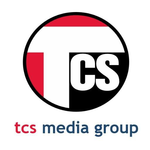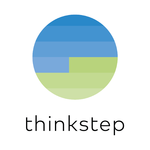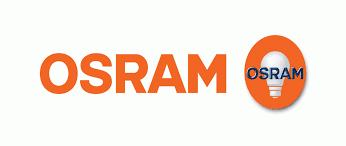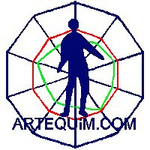Description

eSight

TCS CRM
Comprehensive Overview: eSight vs TCS CRM
As of my last update, eSight and TCS CRM are distinct products serving different needs, particularly in industry-specific solutions and customer relationship management. Below is a comprehensive overview of each, addressing your questions:
eSight Overview
a) Primary Functions and Target Markets
-
Primary Functions: eSight is primarily known for its adaptive technology that assists individuals who are visually impaired. The device is essentially electronic eyewear that enhances vision for people with low vision, enabling them to participate in a wide range of activities that they might otherwise find challenging. It provides functionalities like zoom, contrast enhancement, and built-in algorithms to optimize visual clarity.
-
Target Markets: The primary market for eSight is individuals with vision impairments, including conditions like macular degeneration, diabetic retinopathy, and other similar conditions. It is also used by healthcare providers, vision care specialists, and rehabilitation centers.
b) Market Share and User Base
- Market Share and User Base: eSight is a niche product designed for a specific audience, so its market share is quite specialized compared to broader technology or healthcare solutions. The user base consists of individuals with low vision and various health practitioners who recommend or provide the technology.
c) Key Differentiating Factors
- Differentiating Factors: eSight stands out due to its unique combination of wearable technology tailored specifically for vision enhancement, whereas most other products in the assistive device category do not specifically offer an electronic eyewear format with the same level of customization and portable flexibility.
TCS CRM Overview
a) Primary Functions and Target Markets
-
Primary Functions: TCS CRM (Customer Relationship Management) solutions are part of TCS's overall suite of business software offerings. The CRM systems aim to assist enterprises in managing customer interactions, streamlining processes, and enhancing profitability by emphasizing customer satisfaction and loyalty. These systems encompass sales automation, customer support, marketing management, and analytics.
-
Target Markets: TCS CRM targets a broad range of industries, including but not limited to retail, banking, financial services, insurance, telecommunications, and manufacturing. The system is designed to cater to businesses of varying sizes, from small startups to large enterprises.
b) Market Share and User Base
- Market Share and User Base: TCS, being one of the largest IT service companies globally, holds a significant share in the CRM market, especially within regions and industries where TCS already has a strong presence. Its user base is diverse, spanning multiple continents and sectors, benefiting from TCS's robust delivery and integration capabilities.
c) Key Differentiating Factors
- Differentiating Factors: TCS CRM differentiates itself through its deep integration capabilities within an organization’s existing IT infrastructure, backed by TCS’s extensive consulting, technical support, and customization services. Unlike other CRMs which may offer standalone products, TCS provides end-to-end solutions tailored to specific industry needs, leveraging its expertise in digital transformation, cloud services, and cognitive business operations.
Comparison
The key distinction between eSight and TCS CRM lies in their fundamental purposes and markets: eSight is a specialized assistive device for personal health, whereas TCS CRM is a versatile enterprise software solution. Thus, they do not directly compete but instead serve complementary, distinct roles in enhancing quality of life and business operations respectively. The niche expertise of eSight in vision enhancement technology and TCS's broad enterprise service capabilities are their primary strengths.
Contact Info

Year founded :
2006
Not Available
Not Available
Canada
Not Available

Year founded :
Not Available
Not Available
Not Available
Not Available
Not Available
Feature Similarity Breakdown: eSight, TCS CRM
To provide a feature similarity breakdown for eSight and TCS CRM, let's analyze the aspects you've requested:
a) Core Features in Common:
Both eSight and TCS CRM are solutions that are often used for customer relationship management, although eSight can sometimes be more specific depending on the context. Here’s a general comparison for CRM functionalities:
-
Contact Management: Both systems typically allow users to manage customer information, track interactions, and store contact details.
-
Sales Automation: These platforms generally include features to automate sales processes, such as sales tracking, opportunity management, and forecasting.
-
Customer Support: Features like case management, customer service tracking, and support ticket systems are commonly found in both solutions.
-
Reporting & Analytics: Both systems usually provide reporting tools that help in analyzing sales performances, customer interactions, and business metrics.
-
Integration Capabilities: These tools often offer the ability to integrate with other systems and applications, such as email clients, ERP systems, and other third-party applications.
-
Customization: Both platforms typically allow customization to fit specific business needs, with configurable dashboards and workflows.
b) User Interface Comparison:
-
eSight: If we consider eSight in the context of vision technology, the interface is likely designed for accessibility, focusing on straightforward navigation and ease of use for people with visual impairments. Simplicity and clarity would be prioritized.
-
TCS CRM: TCS CRM interfaces tend to be tailored to business users, offering dashboards, drag-and-drop capabilities, and detailed navigational paths for accessing customer data. It would be more focused on providing a seamless experience for sales and marketing professionals, with a comprehensive overview of client interactions.
c) Unique Features:
-
eSight: Assuming eSight is associated with its visual aids technology, its unique feature would be its vision enhancement capabilities, such as allowing users with visual impairments to see and interact with their environment. This is not related to traditional CRM functionality.
-
TCS CRM: TCS CRM may offer unique industry-specific solutions and tools tailored for complex enterprise environments, often integrating with large-scale operations and providing robust support for extensive data handling and security measures. These might include sophisticated AI for customer insights, deep personalization capabilities, and extensive customization options.
In summary, while eSight (in a CRM context where applicable) and TCS CRM may share common features typical of CRM systems, the application of those features, their user interface design priorities, and any unique qualities they offer will differ based on their core focus and intended user base.
Features

Not Available

Not Available
Best Fit Use Cases: eSight, TCS CRM
eSight by Tata Consultancy Services (TCS) and TCS CRM are two distinct offerings catering to different business needs. Here's an overview of the best fit use cases for each:
eSight
a) For what types of businesses or projects is eSight the best choice?
eSight is an enterprise-wide IT service management and operational analytics platform that's best suited for:
- Large Enterprises: Particularly those with complex IT landscapes needing robust infrastructure monitoring and event correlation.
- Industries with High IT Dependency: Such as telecommunications, finance, and retail, where uninterrupted IT operations are crucial.
- IT Operations Optimization Projects: Businesses looking to improve their IT service management processes, reduce downtime, and enhance operational efficiency.
- Organizations Needing Predictive Analytics: Projects aiming to leverage predictive analytics for proactive incident management and performance optimization.
Industry Verticals and Company Sizes:
- Ideal for large-scale industries with substantial IT infrastructure.
- Suitable for companies aiming for digital transformation through enhanced IT service management.
TCS CRM
b) In what scenarios would TCS CRM be the preferred option?
TCS CRM is designed to manage customer relationships efficiently and is preferrable in:
- Customer-Centric Businesses: Companies that rely heavily on managing customer relationships, such as retail, banking, and telecommunications.
- B2B and B2C Sectors: Environments where understanding customer behavior and personalizing interactions are key.
- Enterprises Seeking Integration: Organizations needing CRM solutions that integrate seamlessly with other business systems for a unified customer view.
- Growth-oriented SME Businesses: Small to medium enterprises aiming to scale operations with a focus on customer acquisition and retention.
Industry Verticals and Company Sizes:
- Applicable across various industries like retail, finance, and telecom due to its customizable features tailored to enhance customer experience.
- Appropriate for both large enterprises and SMEs, especially those undergoing digital transformation efforts focused on customer engagement and loyalty.
Conclusion
eSight and TCS CRM cater to different needs within the enterprise space. eSight is geared more towards IT service management and operational analytics, making it ideal for industries with significant tech infrastructure. TCS CRM, on the other hand, is focused on enhancing customer relationships and is versatile across various markets, especially those prioritizing customer engagement and personalized services. Choosing between them should depend on a business's primary objectives—whether optimizing IT operations or enhancing customer experience.
Pricing

Pricing Not Available

Pricing Not Available
Metrics History
Metrics History
Comparing undefined across companies
Conclusion & Final Verdict: eSight vs TCS CRM
To provide a conclusion and final verdict for eSight and TCS CRM, we need to consider several factors such as functionality, user-friendliness, cost, scalability, integration capabilities, and customer support. Here's an analysis based on these considerations:
a) Considering all factors, which product offers the best overall value?
Best Overall Value: The best overall value depends largely on the specific needs of your organization. However, if you're looking for in-depth customization, robust support for diverse business processes, and seamless integration, TCS CRM might offer greater value. It’s typically well-suited for larger enterprises with complex requirements. On the other hand, if you are seeking a solution that is more focused on specific functionalities, potentially with better pricing for smaller teams, eSight might be preferable.
b) Pros and Cons of Choosing Each Product
eSight:
-
Pros:
- Typically cost-effective for small to medium-sized businesses.
- Specialized features that may be beneficial for certain industries.
- Often praised for user-friendly interfaces that require less training.
- Quick implementation and ease of use.
-
Cons:
- May lack some advanced features needed for larger, more complex organizations.
- Integration capabilities might be limited compared to larger CRM systems.
- Potential scalability issues as business demands grow.
TCS CRM:
-
Pros:
- Highly customizable and scalable, ideal for large enterprises.
- Strong integration capabilities with other business systems and applications.
- Provides robust analytics and reporting features.
- Comprehensive customer support and implementation services.
-
Cons:
- Higher cost, potentially requiring a larger investment.
- May have a steeper learning curve, requiring more training for staff.
- Complex setup might involve a longer implementation period.
c) Recommendations for Users Trying to Decide Between eSight vs TCS CRM
-
Assess Your Business Needs: Start with a thorough analysis of your business size, industry, and specific CRM needs. This will help determine which product features align best with your strategic objectives.
-
Budget Considerations: If budget constraints are a significant consideration, eSight might be more appealing as it generally offers more cost-effective solutions for smaller teams.
-
Scalability and Growth: Consider your growth projections. If you anticipate rapid growth or increased complexity in operations, TCS CRM’s scalability might better accommodate future needs.
-
Trial and Demos: Engage with product demos or trial periods offered by both services. This will give you a hands-on understanding of the user experience and functionality.
-
Integration Needs: Evaluate the existing systems and tools in your tech stack. If integration is critical, TCS CRM might provide more robust solutions.
-
Customization and Support: For businesses requiring extensive customization and support, TCS CRM could be the better choice due to its comprehensive services.
By considering the above factors, users can make an informed decision that aligns with their organizational objectives and resource availability. Each option has its strengths, and the best choice will ultimately reflect the unique needs of your business.
Add to compare
Add similar companies



